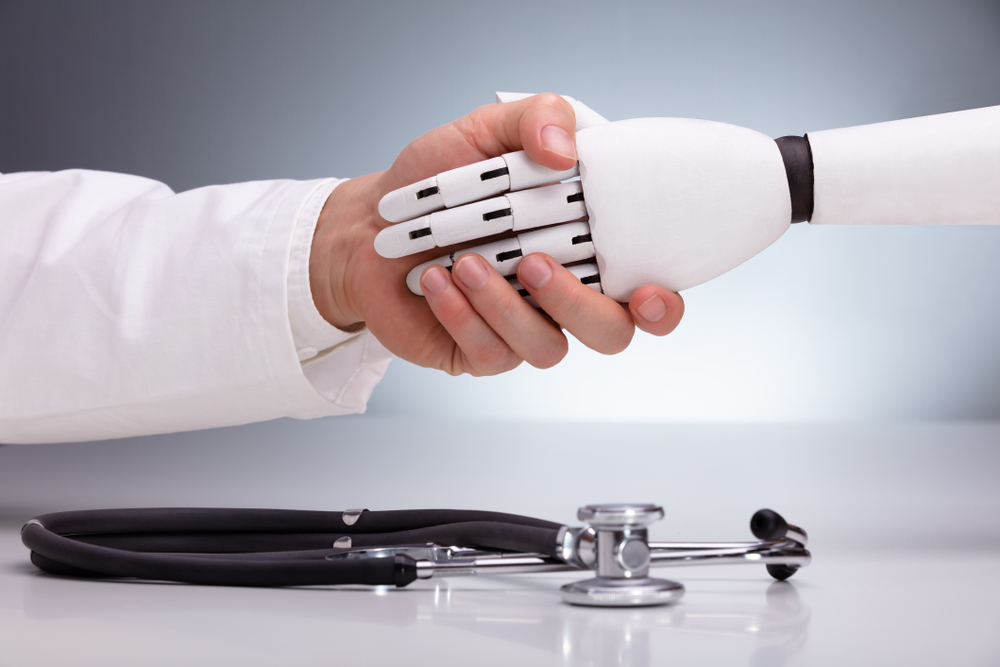The use of Artificial Intelligence (AI) in different industries is sparking debates, and medicine is no exception. Recent advancements show that AI has the potential to transform healthcare, especially in early disease detection. However, it's crucial to understand that AI is not replacing doctors but rather enhancing their abilities.
An expert mentioned that using AI can save time spent on paperwork for nurses and doctors. Sangeeta Reddy, Joint Managing Director of Apollo Hospitals, emphasized that nurses and doctors remain essential because diseases cannot be cured solely by code or technology.
The relationship between doctors and AI is a collaborative one. While AI has great possibilities, Reddy stresses that skilled doctors' significance cannot be replaced by technology. The human touch and expertise in patient care are irreplaceable. However, doctors who embrace AI can improve their abilities in diagnosing and treating patients in this rapidly evolving healthcare era.
AI offers numerous advantages in medicine. With AI algorithms, doctors can analyze vast amounts of data quickly and make well-informed decisions. It aids in disease prediction, medical image analysis, and personalized treatment plans, resulting in more effective and patient-centric care.
As the medical field evolves, doctors who learn to use AI tools gain an advantage. Reddy encourages doctors to keep learning and upskilling. By integrating AI into their practice, they can enhance patient safety, improve diagnostic accuracy, and streamline treatment plans, leading to better healthcare outcomes.
AI is not meant to replace doctors but to empower them with advanced capabilities. The collaboration between AI and medical professionals has the potential to revolutionize healthcare and bring unprecedented advancements in patient care. By embracing AI and staying updated with its applications, doctors can flourish in a rapidly evolving industry. The future of medicine lies in the synergistic partnership between human expertise and AI's powers.

 The collaboration between AI and medical professionals has the potential to revolutionize healthcare and bring unprecedented advancements in patient care. By embracing AI and staying updated with its applications, doctors can flourish in a rapidly evolving industry.
The collaboration between AI and medical professionals has the potential to revolutionize healthcare and bring unprecedented advancements in patient care. By embracing AI and staying updated with its applications, doctors can flourish in a rapidly evolving industry.









.jpeg)




.jpeg)

.jpg)













